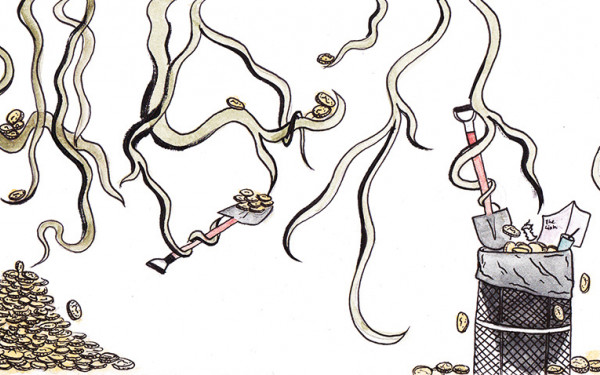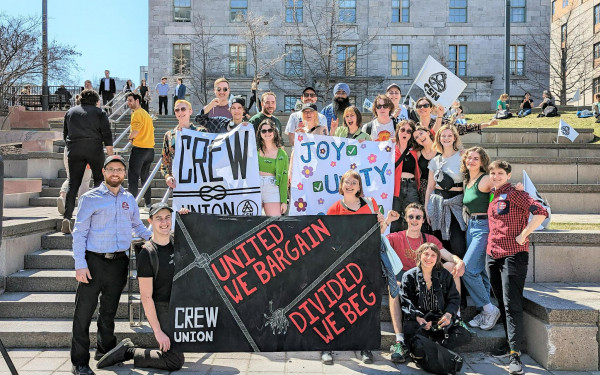TRAC Walks Out of Salary Negotiations
Teaching Assistant Union Refuses Concordia’s Proposal Ahead of Meeting
A meeting scheduled for next Monday between Concordia University and the union representing its teaching assistants won’t happen unless the university makes a better offer for salaries, according to the union’s president.
“It’s clear that Concordia doesn’t care about the quality of education,” said Nader Jafari Nodoushan, President of Teaching and Research Assistants of Concordia, which represents over 2,000 Concordia TAs. “Compared to other universities, our pay grades are way less.”
Concordia’s latest offer will result in a 30 per cent pay cut for nearly half of teaching assistants, he added.
According to Nodoushan, a new proposed pay grade for markers would be significantly lower than the lowest current salaries: $12 an hour for undergrads, and $14.20 for Master’s and PhD students.
In Fine Arts, Arts and Science, and John Molson School of Business faculties, TAs in the lower pay grade make $20.01 an hour if they’re PhD students, while Master’s students make $17.79 and undergrads earn $14.46. The lowest salary for Engineering and Computer Science students is $17.10.
Nodoushan said the latest proposal will affect 45 per cent of TAs, who are in the lowest pay grades. Concordia’s proposal would cut salaries and is under the current budget for TA-pay, he added.
The last time TRAC negotiated salaries, teaching assistants—formerly considered “markers”—were bumped to the higher pay grades described above in order to increase wages that were close to minimum wage for undergrads. Markers used to earn between $10.90 and $13.08 per hour in 2013.
According to Nodoushan, since summer talks, the university has only met with TRAC once in October. The union could vote to strike if the university doesn’t change its offer, Nodoushan added.
The university refused to comment on ongoing negotiations, according to Concordia spokesperson Chris Mota.
TRAC began negotiations in early summer for new pay scales for the 2015-2016 academic year. The union’s collective agreement was only signed in August 2014, but the university promised to revise salaries for TAs before the agreement expires next April, according to Nodoushan.
During negotiations in the summer, Concordia initially proposed a single salary for TAs based on their level of education: $21 for PhD, $19 for Master’s and $14 for undergrads—regardless of their job description, Nodoushan said.
TRAC rejected Concordia’s offer and suggested dividing TA positions into “tutorial leaders” and “markers,” but maintaining current wages as a minimum.
“The intention was to increase everyone’s pay grade,” Nodoushan said. “Concordia already agreed to a new structure, but doesn’t want to accept the costs.”
TRAC has been asking for a single pay grade for students in all levels in all faculties, but this was rejected by Concordia because it would require a 25 per cent increase in the university’s budget for TA salary, Nodoushan said.

_900_600_90.jpg)


_600_375_90_s_c1.jpg)


less_pink_copy_600_375_90_s_c1.jpg)